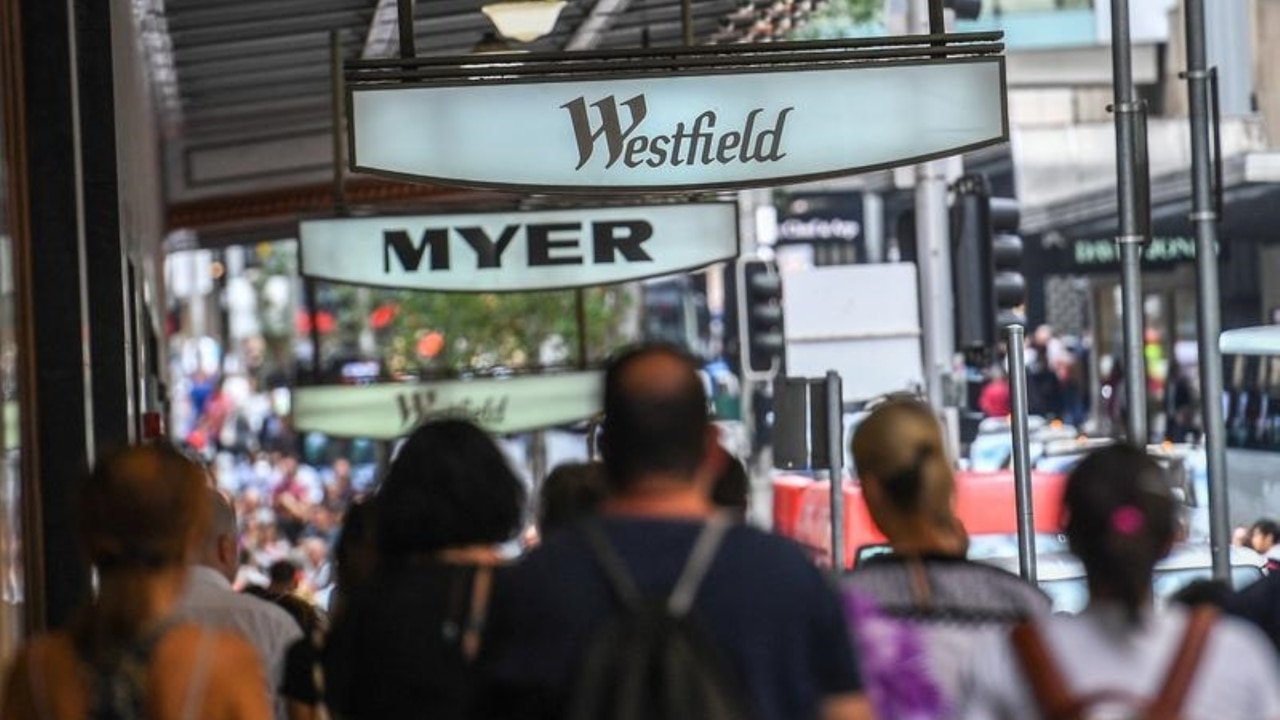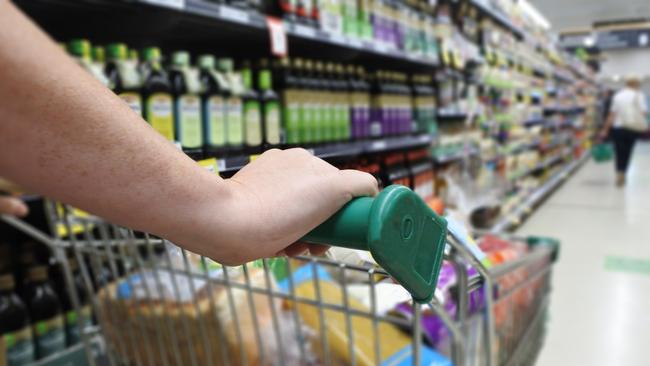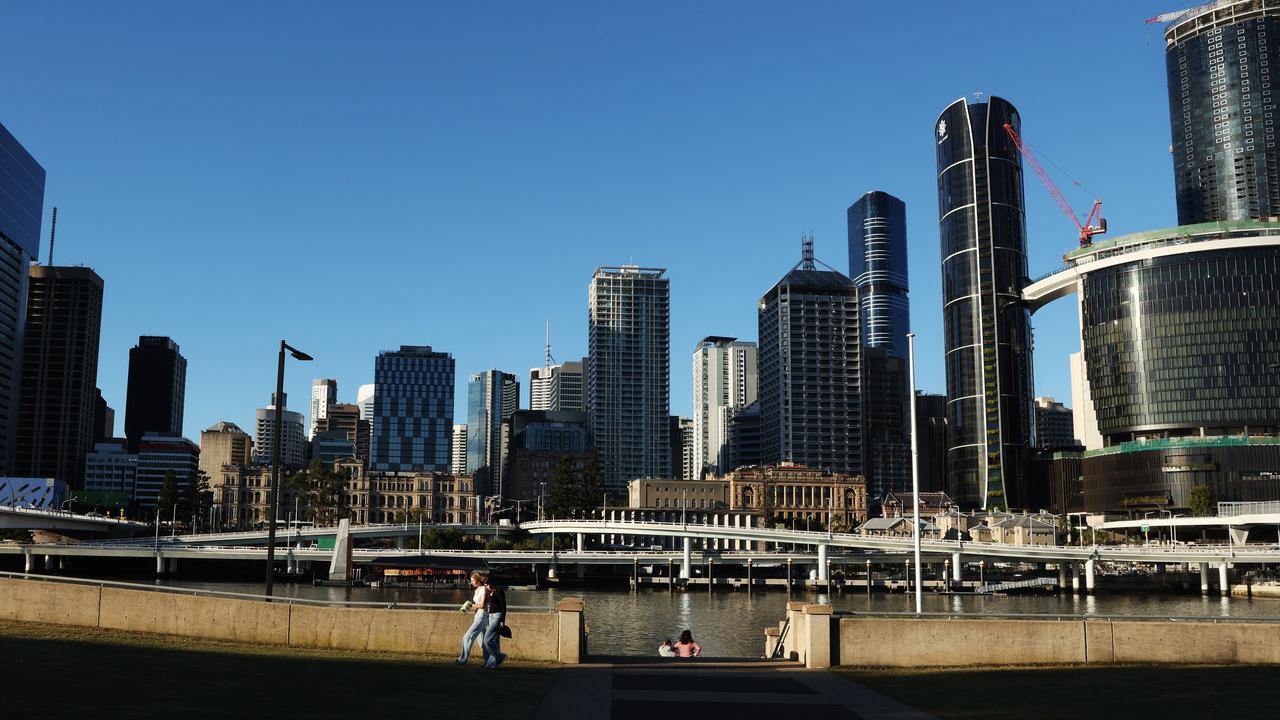Inflation cools in February fuelling hopes RBA could pause rate hikes
The Reserve Bank could leave interest rates on hold when it meets next week as monthly inflation data falls faster than expected, but it’s not all good news as rents and power prices soar.

Business
Don't miss out on the headlines from Business. Followed categories will be added to My News.
The Reserve Bank could leave interest rates on hold when it meets next week after inflation fell faster than expected in February.
The monthly Consumer Price Index (CPI) indicator rose 6.8 per cent in the year to February 2023, according to the latest data from the Australian Bureau of Statistics (ABS).
Financial markets had expected the monthly CPI print to decrease from 7.4 per cent in January to 7.2 per cent for the month, according to Bloomberg.
Housing was the most significant contributor to the annual increase seen in February, up 9.9 per cent, compared to 9.8 per cent in January. This was on the back of soaring rental and electricity prices across the country, which the later surged 17.2 per cent in the past 12 months.
Food and non-alcoholic beverages inflation down from 8.2 per cent in January to 8 per cent last month, while transport costs rose 5.6 per cent and recreation culture inflation lifted 6.4 per cent.
“The annual increase for the Housing group in February was lower than January (10.4 per cent),” ABS head of prices statistics Michelle Marquardt said.
“Rent prices rose again due to the tight rental market, maintaining the 4.8 per cent annual growth recorded in January.”

February was the second consecutive month that inflation had eased since it reached a peak of 8.4 per cent in December.
The sharper-than-expected fall is likely to reaffirm market consensus for the RBA to leave rates on hold at 3.60 per cent, with markets expecting a series of rate cuts later in the year as well.
It comes after minutes from the RBA’s meeting earlier this month confirmed that it would consider a pause when it meets next month, saying it would allow it “additional time to reassess the outlook for the economy”.
“The odds have increased considerably that the RBA pauses its rate hiking cycle at its board meeting next week and keeps the cash rate at 3.60 per cent, following the release of soft retail sales data yesterday and cooler than expected inflation,” IG markets analyst Tony Sycamore said.
Westpac chief economist Bill Evans said last week that a pause in April would likely be followed by a final 25bp hike in May to take rates to 3.85 per cent.
The RBA said that while headline inflation had most likely peaked at the end of 2022, core inflation remained too high and that forecasts for a return to its 2-3 per cent target by mid-2025 was on the assumption that rates would increase a “littler further”.
RBC chief economist Su-Lin Ong has pushed back its RBA rate hike to May on the back of monthly CPI coming in less than expected. She said the data would likely confirm the RBA’s base case that while inflation peaked late last year, it remained far too elevated and a long way from target.

“The still challenging inflation outlook suggests that policy needs to move more restrictive. The decision at next Tuesday’s board meeting is likely to be finely balanced and close,” Ms Ong said. “We push back our April hike, most likely to May. The window to hike further appears small ahead of the step up in fixed rate mortgage expiry from mid-year.”
ANZ senior economist Catherine Birch said that the monthly CPI indicator showed inflation momentum remained strong and was not slowing as much as the fall in annual inflation would suggest.
“While encouraging, the decline in annual inflation so far doesn’t guarantee that it falls back to target under current policy settings,” she said. “This makes us comfortable with our call that the RBA will raise the cash rate 25bp at its April meeting.”
Automotive fuel prices rose 5.6 per cent in the year to February, down from January’s annual rise of 7.5 per cent. While fuel prices drove the increase in Transport, annual growth for fuel is the lowest it has been in two years.
Recreation and culture prices moderated this month with annual growth of 6.4 per cent in the year to February, down from 10.2 per cent in January 2023. This was primarily due to Holiday travel and accommodation prices easing from an annual rise of 17.8 per cent in January to 14.9 per cent in February.
“Since rising 29.3 per cent in the 12 months to December, price rises for Holiday travel and accommodation have eased to 14.9 per cent in the 12 months to February,” Ms Marquardt said.
The monthly CPI data launched last year does not include the full basket of consumer goods, with the quarterly report offering the most complete picture.
Originally published as Inflation cools in February fuelling hopes RBA could pause rate hikes



